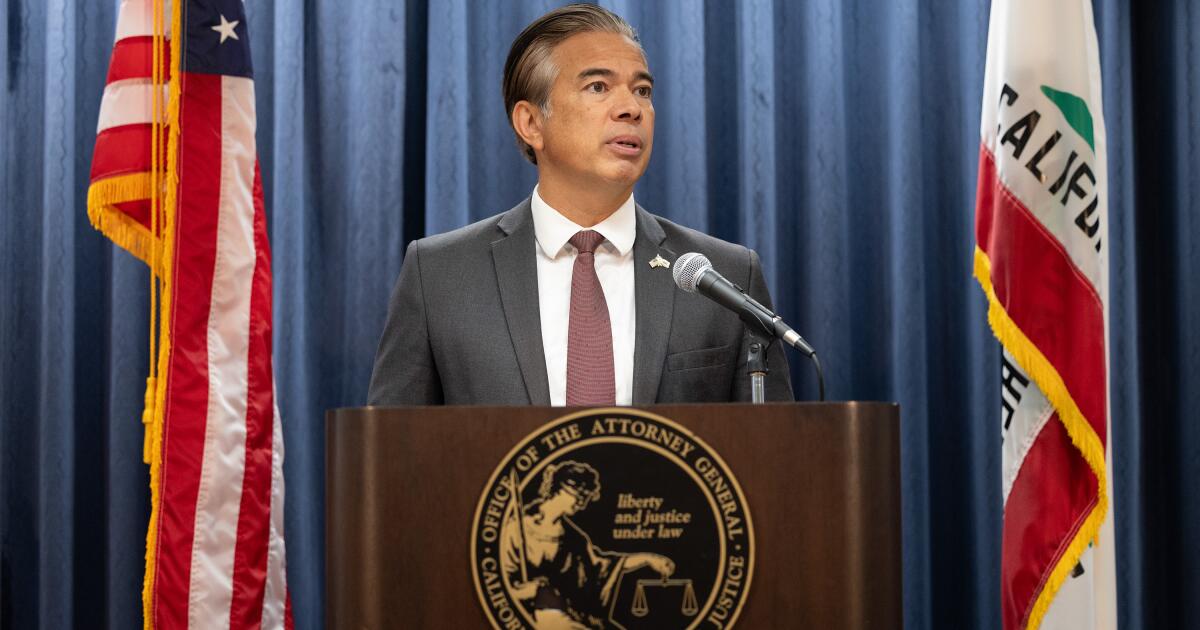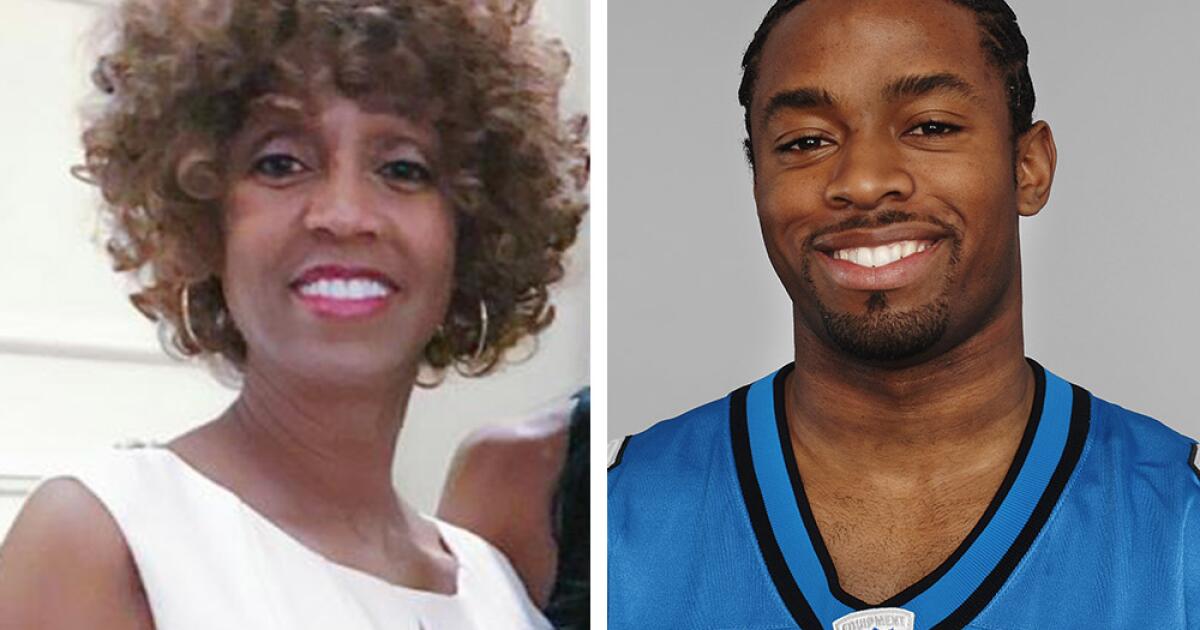Deaths and grim conditions in L.A. County jails prompt state lawsuit
The California Department of Justice will sue the Los Angeles County Sheriff’s Department and its sheriff, Robert Luna, for what Atty. Gen. Rob Bonta called a “humanitarian crisis” inside of the county jails.
Inmates are housed in unsafe, dirty facilities infested with roaches and rats, Bonta said in a news conference Monday, and lack basic access to clean water and edible food. “More alarming, people are dying,” he said.
There have been over 205 in-custody deaths in four years, Bonta said, with 40% caused by suicide, homicides and overdoses. He called for comprehensive reform, but said the county forced his hand by refusing to comply.
“I’d prefer collaboration over litigation, but the county has left us with no choice, so litigation it is,” he said.
Bonta called for L.A. County and the sheriff’s department to provide inmates with adequate medical, dental and mental health care, protect them from harm, provide safe and humane confinement conditions. He also called on jail officials to better accommodate the needs of disabled inmates and those with limited English proficiency.
Bonta painted a dark portrait of L.A. County’s jails, describing filthy conditions, vermin and insect infestations, a lack of clean water and moldy and spoiled food. He said prisoners face difficulty obtaining basic hygiene items and are not permitted to spend enough time outside of their cells.
L.A. County, which houses the largest jail system in the country, has long been criticized for poor conditions. As it has expanded to hold around 13,000 people on any given day, decades — perhaps a century — of mistreatment and overcrowding have been documented.
The system lost a federal lawsuit in 1978 after decades of dirty, mold-ridden and overcrowded jails prompted inmates to fight back through the courts, and frequently faces suits alleging it fails to provide proper food, water and shelter.
The state’s lawsuit comes amid a years-long struggle to close and replace Men’s Central Jail in downtown Los Angeles, from which inspectors regularly document poor conditions: mold, mildew, insufficient food and water and, more recently, a report last year that said jailers were too busy watching an “explicit video” to notice a noose hung inside a cell.
“In June 2024, the Sybil Brand Commission reported that multiple dorms at Men’s Central were overcrowded with broken toilets, some containing feces that could not be flushed; a urinal that caused ‘effluence to emerge through the mid-floor drain’ when flushed; and ceilings that had been painted over to cover mold,” Bonta’s office wrote in its complaint.
In addition to Luna and the sheriff’s department, the county Department of Health Services, Correctional Health Services and its director, Timothy Belavich, were also named as defendants.
The lawsuit decried the “dilapidated physical condition of the facility and the numerous instances of violence and death within its walls.” It went on to explain that the county Board of Supervisors voted to close the chronically overcrowded Men’s Central Jail twice, including in 2020.
The sheriff’s department has said it would be difficult to close the jail because of the high volume of inmate admissions and lack of viable alternatives.
But in-custody deaths this year are on track for what Bonta’s office described as at least a 20-year high with 36 reported so far, or about one a week, according to the county’s website.
Inmates have been known to set fires in rooms with no smoke alarms — not to cause mischief, but to cook and supplement cold, sometimes inedible meals.
Some inmates — many of whom have been arrested recently and have not been convicted of crimes — are left to sleep on urine-soaked floors with trash bags as blankets and no access to medications and working plumbing. A 2022 lawsuit from the American Civil Liberties Union called the conditions “medieval.”
“The LASD jails,” the state attorney general’s office wrote in the complaint, “have a longstanding history of deplorable conditions and constitutional violations.”

